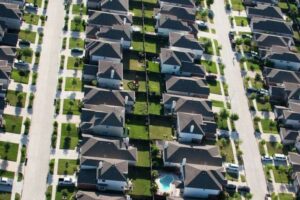No matter where you travel, from suburban streets to city parks, the pattern is the same. Landscapes arranged like showroom displays. Neat lines of ornamental shrubs imported flowers, and carefully spaced “designer” trees. They’re meant to look beautiful, but something about them feels eerily hollow.

These plants, often brought from other continents, stand apart from the ecosystems around them. They have no relationships with the soil beneath them, no history with the insects or birds that live nearby. Many have been cultivated not by nature, but by human preference.
In chasing this kind of beauty, we’ve traded meaning for maintenance. Our gardens have become sterile stages, controlled, predictable, and disconnected from the wild rhythms that once shaped the land. And while we tend these ornamental scenes, the real living world, the native forests, meadows, and wetlands, continues to shrink, replaced by developments that serve only one species: us.
But here’s the quiet truth we often overlook. These landscapes don’t just separate us from nature, they separate us from ourselves. Humans evolved in relationship with the living world. Our senses, our sense of belonging, even our mental health depend on that connection. When all we see are non-native, chemically managed plants in sterile soil, something deep within us grieves.
To heal that grief, we have to begin where we stand.
Plant something that belongs. Something native to your region. A tree whose flowers feed local pollinators. A shrub whose berries sustain migrating birds. A wildflower that knows how to dance with your climate’s rhythms, not fight against them.
When we plant native species, we aren’t just gardening, we’re repairing the web of relationships that sustains life. We’re saying yes to soil and songbirds, to insects and rain, to the idea that we are not separate from the world, but part of it.
So, the next time you look at a perfectly trimmed hedge or a row of imported ornamentals, pause and ask,
“What if beauty looked more like belonging?” — Patrick Dickinson
Subscribe now for the latest news and first access to upcoming events.

ADDRESS:
12804 Pelzel Rd Pilot Point TX 76258
*Located off FM 455, about halfway between Celina and Pilot Point
CALL: 972.954.8580
TEXT: 972.954.8574

HOURS:
Tuesday – Saturday 9 AM – 5 PM
Sunday 10 AM – 5 PM
Subscribe now for the latest news and first access to upcoming events.